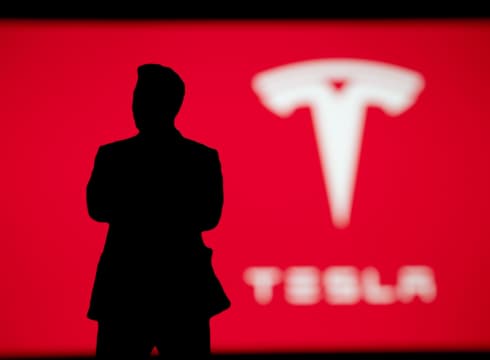There is no proposal currently either to provide exemption from local value addition cost or to provide subsidy on import duty on import of EV, MoS for commerce Som Parkash said
This comes a month after reports surfaced that the Indian government was mulling tax sops for automakers provided they commit to eventually manufacturing EVs in India
Currently, automakers are liable for duties in the range of 70-100% for importing EV vehicles
Inc42 Daily Brief
Stay Ahead With Daily News & Analysis on India’s Tech & Startup Economy
Amid reports of a thaw in relations between the Indian government and Elon Musk-led automaker Tesla, the Centre on Wednesday (December 13) told the Parliament that there is no proposal to cut taxes on import of electric vehicles (EVs).
“Presently, there is no proposal either to provide exemption from local value addition cost or to provide subsidy on import duty on import of electric vehicles in India,” said minister of state (MoS) for commerce and industry Som Parkash in a written reply.
The comments are expected to ruffle some feathers at Tesla, which is working to set up a manufacturing unit in India. As part of the company’s India plans, the Centre was said to be mulling tax sops for automakers provided they commit to eventually manufacturing EVs in India.
The statement comes close on the heels of the display of public bonhomie between union minister for commerce and industry Piyush Goyal and Musk after the former visited a Tesla factory in the US in November.
The Indian government’s move to dish out tax incentives is largely centred on the premise of attracting global EV makers to the country and opening up the market to global competition. The development also comes nearly a week after Tata Motors reportedly urged the authorities to not lower import duties, warning of an adverse impact on local players.
It is pertinent to note that Musk criticised the Indian government in 2021 over the high import duties and said Tesla would not manufacture in any country where it was not allowed to sell and service cars first.
However, his stance softened after Musk met Prime Minister Narendra Modi during the latter’s visit to the US this year. The Tesla chief then even said that he was “incredibly excited about the future of India”.
Tesla’s India ambitions are led by considerations around leveraging the growing EV penetration in the country and the rising demand for EVs among India’s expanding middle class. The company wants to cash in on this boom without paying hefty duties on imports that fall in the range of 70%-100% depending on the cost of the vehicle.
Meanwhile, Parkash, on Wednesday, also underlined a slew of measures taken by the government to promote the EV industry in the country and boost investments into the sector.
“Government has also taken various steps to boost domestic and foreign investments in India to enhance local value addition under (the) Make in India initiative. These include the introduction of GST, reduction in corporate tax, improving ease of doing business, FDI policy reforms,… Phased Manufacturing Programme (PMP) and QCOs (Quality Control Orders), to name a few,” the minister said.
He also touted the INR 25,938 Cr Production Linked Incentive (PLI) scheme for manufacturing of automobiles and auto components as well as the INR 18,100 Cr national programme on advanced chemistry cells (ACC) battery storage.
As a result, a host of global and domestic players have made a beeline for the country. Taiwanese tech major Acer recently ventured into the country’s EV market by licensing its brand to mobility startup eBikeGo.
Vietnamese electric car maker VinFast also announced plans to invest $150 Mn-$200 Mn in India to set up a completely knocked down (CKD) assembly unit. In addition, big names such as Audi and Mercedes-Benz have also ramped up India operations to grab a bigger pie of the burgeoning Indian EV ecosystem.
Meanwhile, EV registrations in the country stood at 1.43 Lakh units in November, up more than 36% year-on-year, as per Vahan data.
Key Highlights
Funding Highlights
Investment Highlights
Acquisition Highlights
Financial Highlights
Note: We at Inc42 take our ethics very seriously. More information about it can be found here.






